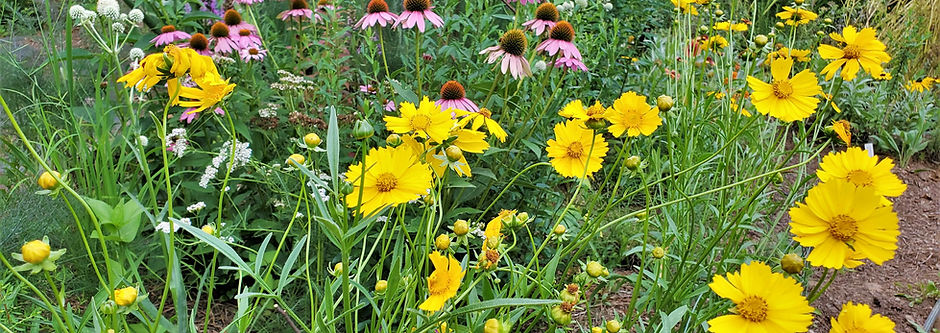Purple Passionflower Vine is a Carefree Native Alternative to Invasive Vines
- ljmarkson
- Nov 16, 2020
- 2 min read
Updated: Jul 7, 2024
Let me tell you why...

An easy way to nurture native nature is to replace invasive vines such as English ivy or Chinese wisteria with the carefree butterfly host and pollinator nectar plants such as purple passionflower vine (Passiflora incarnata). With its whimsical tendrils, rich green distinctively shaped leaves, and show stopping purple flowers more exotic looking than any finicky non-native orchid, passionflower vine makes a striking seasonal upright vine or groundcover where little else might grow as long as it gets some sun.

A few years ago I planted a small vine I found at a Georgia Native Plant Society sale and now I have purple passionflower vine rambling on the ground, over fences, trellises, bushes, and up trees. Unlike tree and bush killing English ivy or Chinese wisteria, passionflower vine doesn't kill its host because the vine dies back to the ground ever year...and is often defoliated by caterpillars before that!
Passionflower vine forms an extensive and deep underground root colony. New shoots often appear yards away from the initial plant. The shoots that pop up can easily be removed wherever they aren’t wanted. I pot up unwanted passionflower in the early spring when shoots just start emerging to share. Getting as much of the deep main taproot as possible when digging the fragile offshoots helps..
Traditional ornamental gardeners give passionflower vine’s exuberance a bad rap. From an ecological perspective, more vines equals more habitat. Since passionflower vine is a host plant it also means more butterflies!
Once planted, I spend little time managing my passionflower because no matter how many vines I let grow in my yard, by mid-September there never seems to be enough for the hordes of hungry gulf fritillary and occasional zebra longwing caterpillars who strip the leaves to the stem. In a world where creating gardening for nature is the goal, a popular native host and nectar vine that happens to also be a rambunctious grower is a welcome friend!


.jpg)
